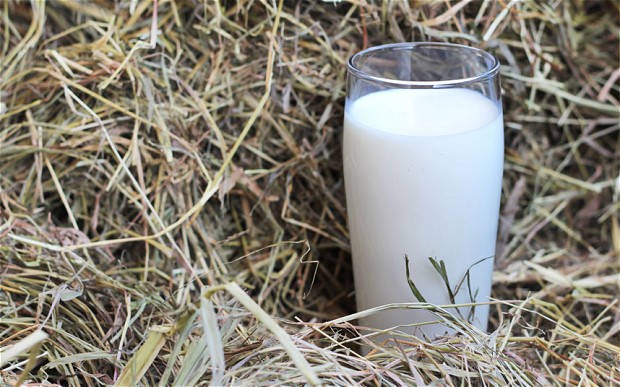
To its fans, unpasteurised, raw milk tastes so much better than the pasteurised variety that there’s no contest
When, in 1971, a bunch of drinkers got together to form a pressure group called the Campaign for Real Ale, many of the rest of us poked fun. We dismissed them as tubby, fanatical, fortysomethings with full beards who wore sandals in winter. How wrong we were. Thanks to Camra’s efforts, all pub-goers have benefited – for it is once again possible to have a pint of beer that isn’t as bland or as carbonated as the fizzy, gassy stuff that was all that was easily available at the time. Today, not only have the distinctive local brews of our youth been restored, but an even greater number of delicious, honest and properly made new beers have popped up.
Could milk follow the same path? The story, after all, is very similar. A coterie of connoisseurs has always insisted that real milk is raw milk: unpasteurised, straight from a herd of closely supervised, regularly health-inspected cows. The only difference between real milk and real ale is that the former comes with royal approval, with the Windsors said to be its most exalted fans. And the arguments for it have convinced the public: now that a Food Standards Agency consultation has found a widespread appetite for the product, it could soon be back in vending machines.
How can its proponents favour unpasteurised milk? After all, pasteurisation – heating milk to a temperature under the boiling point – is known to kill a host of bugs (Brucella, Campylobacter, E. coli, Salmonella, Listeria) that cause food poisoning and worse.
The unsurprising answer is that, to its fans, raw milk tastes so much better that there’s no contest. They say raw milk is a “living” food, whose delicate flavour varies with the breed of cow and the pasture it grazes. I know drinkers who have found the tastes and smells of clover, fresh-mown grass, sweet hay and even wild flowers in their morning half-pint.
Yet the arguments for raw milk go beyond taste and flavour. When unpasteurised milk sours, it does not necessarily go off, as the pasteurised variety does – it just becomes more cultured. The reason is that pasteurisation also kills off the desirable bacteria, the good germs that add flavour, aroma and texture.
Written by Paul Levy















